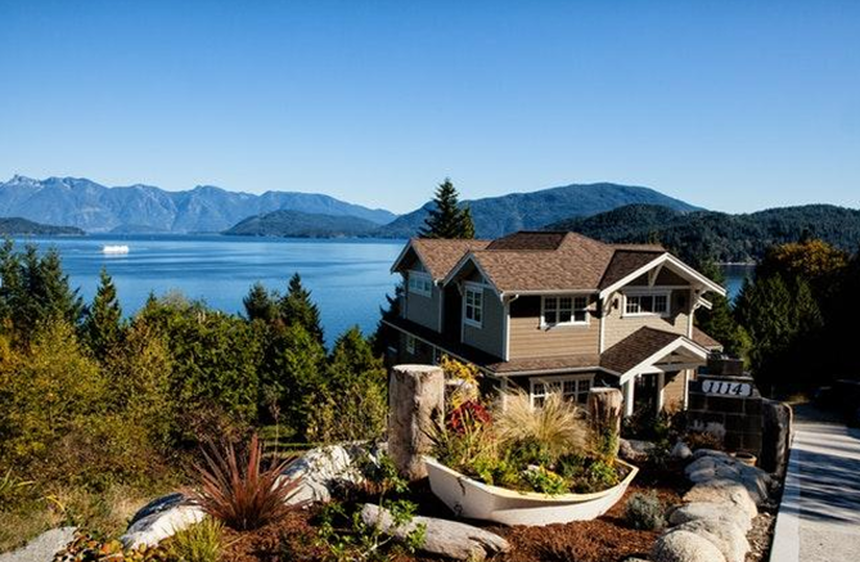|
Guest Writer: Sally Norton One of the biggest dilemmas of real estate is regarding the difference between a second home and an investment property. Even though they seem similar, there are some crucial differences between the two. So, if you're looking to buy a new property, the first step is understanding those distinctions. After all, it's only logical to know what type of property suits your real estate needs. The choice you make will affect down payment requirements, mortgage rates, and even tax treatment. Therefore, you have to be adequately informed before you make any decisions. That's precisely why you need to read this article. We'll thoroughly explain everything you need to know about a second home and investment property. So, let's begin! A second home vs. an investment property A second home is simply a property you buy to spend time in during vacations and holidays. It's a part-time home to your full-time home. According to the IRS, "a second home is a property you live in for more than 14 days per year or 10% of the total days you rent it to others". Therefore, this property is solely yours, but you can decide to rent it when you're not spending time in it. How often you rent your second home will determine your tax treatment. Besides vacation homes, second homes can be pied-à-terres or properties used for work. The primary purpose of investment property is renting or flipping and selling for a more significant profit. While second homes can consist of only one unit, you can turn your investment property into two to four units and rent it to multiple tenants, thus, have a bigger investment income. Another form of investment property is commercial property. In addition, using the rent received from tenants, you may generate equity in the housing market by developing an investment property portfolio. This is a fantastic long-term profit approach. Understanding the difference between a second home and an investment property is the first step of being in a real estate market. Difference between a second home and an investment property As we mentioned before, there are a few significant differences between a second home and an investment property you should consider before purchasing a property and signing any formal documentation. So, without further ado, let's see what you should focus on! Down Payment Requirements Lenders often consider investment properties to be riskier than both primary properties and second homes. That's why they ask for a bigger down payment right away. To put it in numbers, the down payment for investment properties usually varies from 15% to 25% of the total sale price. However, this can easily change and vary due to the size of the property. When it comes to a second home, the down payment is higher than the one for a primary home but lower than the one for an investment property. It can go as low as 10%. It depends on your lender and their requirements. Mortgage rates Mortgage rates for a second home and an investment property are usually higher than those for primary residences. However, the mortgage rate may vary depending on criteria such as your credit, DTI (debt-to-income) ratio, type of mortgage you're applying for, and its duration. When it comes to the difference between the mortgage rates for second homes and investment properties, you often receive higher rates for the latter. Why? Again, mortgage lenders see investment property mortgages as the riskier ones. Since you're not using this property you purchased, they may think you'll easily walk away from paying off your mortgage for it. Mortgage rates are different for second homes and investment properties. Other qualifications and requirements If you want to qualify for a mortgage on a second home while still paying off the mortgage for your primary residence, you'll have to prove to your lender that you're financially stable enough to pay for both. On the other hand, if you're purchasing an investment property, some banks may accept up to 75% of your expected rental income as part of the qualifying income. In this situation, you'll be able to lower your DTI ratio and simplify the process of qualification for the investment property mortgage. Furthermore, lenders may require your second home to be at a certain distance from your primary residence. In other words, they can set some geographical limitations. There are no such limitations for an investment property. Tax treatment Taxes are one of the most dreadful parts of both second homes and investment properties. When it comes to the return on investment property, you'll have to report every bit of the income you receive, in most cases. However, expenses such as mortgage interest, utilities, repairs, and cleaning may be deducted. On the other hand, if you're renting your second home when you're not using it, things can get a bit complicated taxes-wise. To understand your tax treatment in this situation, you'll have to calculate the difference between the personal and rental use of your second home. If there are more than 14 days of personal use or this personal use exceeds the rental use by 10%, you can't deduct all of your rental fees. However, if you rent your second home for less than 15 days a year, you are in no obligation to disclose your income to the IRS should you not deduct any rental expenditures. There are different tax treatments for different types of property. Should you purchase a second home or an investment property? The answer to this question is pretty simple. If you want to purchase a property whose purpose would be solely to generate income, then an investment property is the right path for you. You can build a few units and rent them out, or flip it and sell it for a more significant profit. Either way, this is a fine strategy for a future income. On the contrary, if your goal is to purchase a property where you will spend your vacations and holidays, go for a second home. In addition, you can rent this second home when you're not using it. However, pay close attention to the tax section in your final agreement. So, if you decide to purchase a second home, you'll have to relocate some of your belongings there. Therefore, making a packing and moving checklist is a must. You don't want to forget anything, right? If you want to prepare everything on time, you'll have to organize this process from A to Z! This implies everything from contacting a moving company to unpacking in your new vacation home. The Bottom Line Even though it might seem minor, the difference between a second home and an investment property is crucial. You can't overlook different treatments regarding taxes, mortgage rates, and down payment requirements. This is something that you must take into consideration when deciding what type of property you'll purchase. However, it all comes down to one thing - your end goal, whether you want a vacation home or a property you'll profit from.
0 Comments
Your comment will be posted after it is approved.
Leave a Reply. |
AuthorJason Gelios is a Husband and Father. After that, a Top Producing REALTOR®, Author of the books 'Think like a REALTOR®' and 'Beating The Force Of Average', Creator of The AskJasonGelios Real Estate Show and Expert Media Contributor to media outlets across the country. Archives
July 2024
Categories |






 RSS Feed
RSS Feed